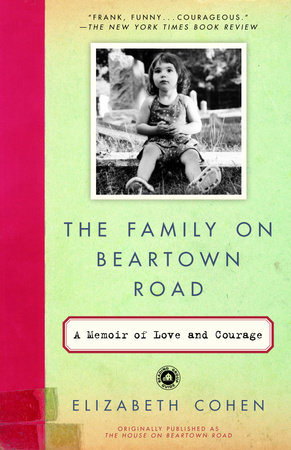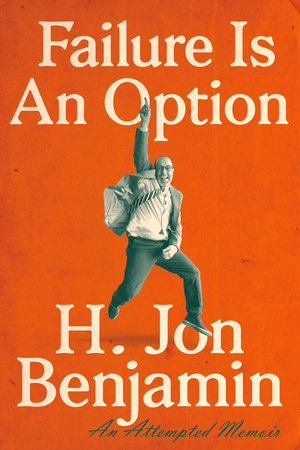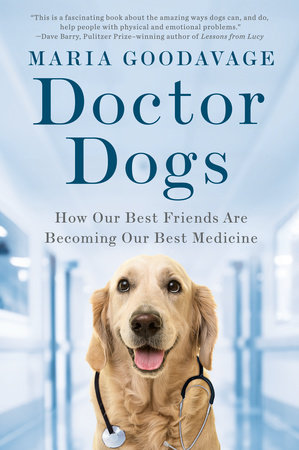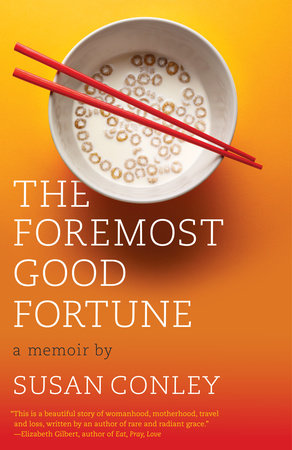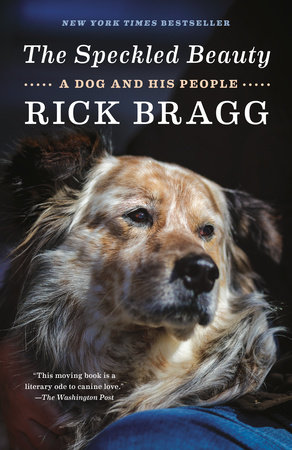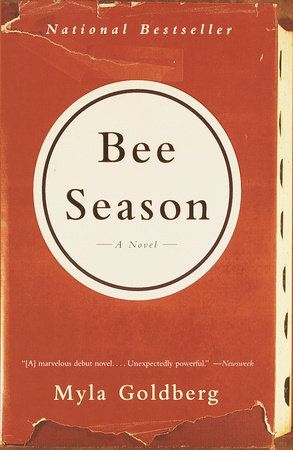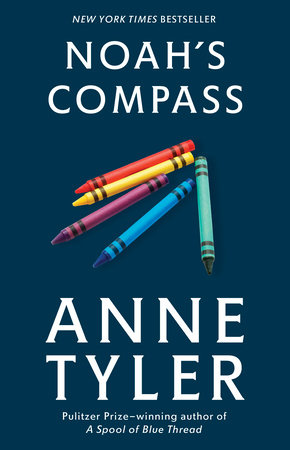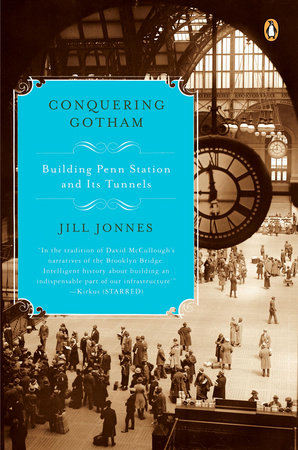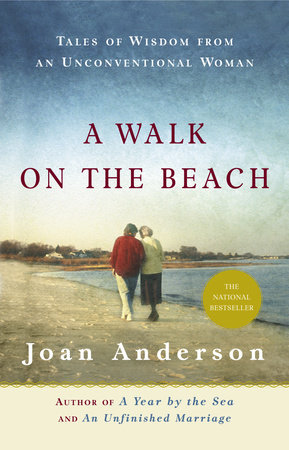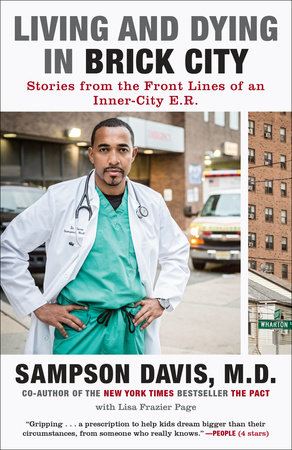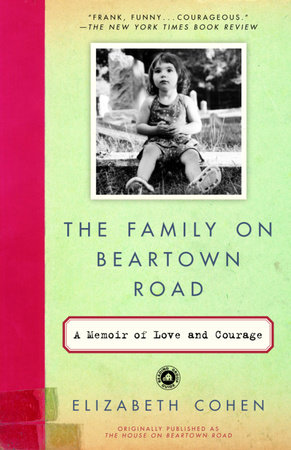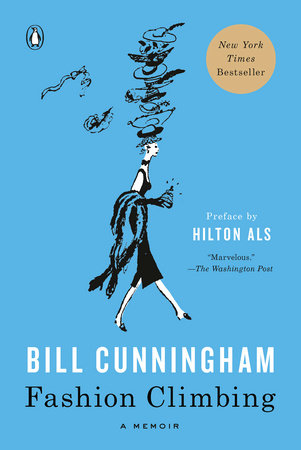Author Q&A
An Interview:
Anna Quindlen and Elizabeth Cohen Discuss The Family on Beartown Road
Anna Quindlen, bestselling author of Blessings and A Short Guide to a Happy Life, recently sat down with Elizabeth Cohen to discuss what it was like to write The Family on Beartown Road.
Anna Quindlen: This book deals in part with your experience as part of the “sandwich generation,” a generation of people simultaneously caring for their aging parents and their own young children. Could you speak to that issue a bit?
Elizabeth Cohen: When my father moved in with me I joined the growing ranks of the "sandwich generation.” Daily, we tend to the needs of people at the opposite ends of life, needs which sometimes mimic each other but also can clash. I have my own name for it, I call it "extreme parenting." In most cases the people in the middle of the sandwich generation have children that are school age or even about to go to college. Rarer are those who, like myself, find themselves in the position of caring for an elderly, infirm parent or one with Alzheimer’s disease at the same time they have an infant. That can mean feeding and diapering two very different sorts of people.
But there is a silver lining. When your parent and your child find a place they can communicate with on another, when you see that they have begun to give one another some solace, it can be quite beautiful.
AQ: How is writing a memoir different from writing columns?
EC: Column writing is snapshot writing. You do not have the time or space to expound on anything, so you settle for a picture. You set a scene and communicate one or two ideas. You tell a story in brief. In a memoir you have the space to spread your thoughts out. To decorate them. To let them breathe and evolve and build.
AQ: Was it harder to write a memoir?
EC: It was different. Column writing can be very stressful because of the pressure of daily deadlines. Memoir writing is scary in a different way, because you become aware that your readership is so much larger and broader.
AQ: Do you feel like writing this memoir changed you?
EC: The experience changed me. Being with my dad and daughter alone, responsible for them both, trying to meet their needs, made me grow up. I feel changed entirely. The parts of me that skirted responsibility, that took easy ways out, that opted for an extra ten minutes in bed in the morning were voided. In their place came a person who grew the capacity to put myself on a shelf. I became much more patient.
Writing the memoir became a release valve for all the pressures that built up.
AQ: This is a courageous work, you were all alone, you handled taking care of your father and your daughter Ava and you wrote a book.
EC: I felt very alone, I was scared of my situation and writing about it seemed to help.
AQ: Usually when I’ve written quite personally about a family or a friend I can show them the material, or at least tell them what I’m doing so they can approve. But with your father, who had Alzheimer’s, and your daughter, who was only a toddler, you couldn’t do that.
EC: The ethical questions loom large for me. Is it right to write about people whom you cannot ask for permission? I don’t know.
AQ: Do you have a shortstop in your writing? In other words, are there privacy boundaries you won’t cross in telling the story of your life? I know in my own life, writing about my kids and family, I reached a point where it no longer felt appropriate to keep writing about their lives. I had to stop.
EC: I have no shortstop. And I have thought a lot about this. I did not stop myself from writing down absolutely anything and everything that happened to me during the time this book was written. Possibly that is because I didn’t know I was writing a book at the time I began and then that tell-all style became my template for the later parts of the book when I did know I was writing a book.
AQ: You have done a wonderful turn for your father, commemorating his life in this lovely book.
EC: I have thought about that a lot, too. This book depicts him at his weakest moment of life. He was and is truly a great man, he cared about people, he lived his life following strong ethical principles, he fought to help unionize the hospitals in Albuquerque, New Mexico, he fairly arbitrated for labor unions all over the country, he struggled to helped find solutions for desperate economies in the third world. It seems to be sad, too, that he may be remembered now for this disease that snatched him at the end of a remarkable and stellar life.
AQ: I am not sure that is how he’ll be remembered. I think all that he was comes through. We get a feeling for him throughout his life, not just who he became. Especially in the part where you quote from his book at the end and talk about his work in economics. It is just sad he doesn’t know about it.
EC: Well, he was always very proud of me for my writing, and although I can never know for sure, and I could not really ask him, although I tried, I believe he would have supported this project, even though it would reveal so much of the intensely private realm of his life.
AQ: One part of the book I love is when, as your father’s mind wanders, he invents phrases, wonderful phrases to express himself. Some of those were like poetry.
EC: Word salad. That is what it is officially called. When my father could not remember the correct words for things he would grope for a substitute and that is when he came up with these beautiful words and phrases. He called apples the magnificent crackly ones, he called Ava the beautiful little one and me the beautiful big one.
AQ: That is the one I was thinking of, that is so wonderful is about Ava, about her coming into a room.
EC: He said she was the one who fills the room with hurricanes, he meant, I think, that she makes a huge mess wherever she goes.
AQ: Another part that was very touching was about your neighbors. You had not even known them and they became such an important part of your existence, and how they came to help you out and delivered food, was very touching.
EC: When winter really came on I realized how fearfully unprepared for it I was. That was when my neighbors stepped in. Fortunately they dug us out numerous times. They became friends, almost like family.
AQ: In the midst of all that was going on in your life, where and how did you find the time to write a book?
EC: I wrote at night. My father would wake me up when he would wander around the house, or Ava would wake me up when she woke up, as babies often do, and I would find myself sleepless. So I’d go to the computer. And that is when the bulk of this material came spilling out of me.
AQ: Did it help you to write it down, was it a relief?
EC: It was therapy. My computer was my therapist. I really believe I was able to cope with intensely difficult circumstance because of two factors — the levity and joy that Ava brought to my life and being able to write it all down.
AQ: Taking care of a person with Alzheimer’s disease is renowned for its difficulty. One thing you seem to have learned is how to humor the person with the disease to protect them.
EC: Yes, rather than correcting or trying to reorient my father all the time when he become confused, which could be very upsetting to him, I learned how to play along and humor him. If he asked me when we were going to Ohio, for example, I would just say in a week or so, even though we were not going to Ohio.
AQ: What did you learn from this time of your life, would you do anything different now?
EC: I learned that you must be prepared in life. I always keep a stack of dry wood on my porch now. I have a hurricane lamp ready to go with oil. I keep flashlights. If I could go back in time I would get better vehicles, a snowblower, a better shovel, I would take more time with my father than I did then to savor his memories, his personhood, because time is harsh. Now he is almost completely gone. He no longer talks. He no longers sees me. I miss him even in the fractured state that he was in during the time of this book. I miss him so terribly. And there is no going back.
AQ: In a sense writing is all about memory and your book is about memory being lost. Do you think that writing a book like yours staves off the loss of memories in some sense?
EC: There is no staving off the end of life, no staving off the end of memory, it runs its own course in each individual life. What you can do is save things for future generations. My sister recently said to me that she thought of this book as a gift for the children of our children and their children, etc. “What do we know about our great grandmothers?” she asked me. We know nothing at all. Now a slice of time has been preserved for those future generations, if they are interested. And in a way it is good that it was a difficult time. It is really what a part of our lives were like.
AQ: in the book you worry a lot about losing your own memory. Do you still worry about that?
EC: Less now that my father lives separate from me. I still catch myself panicking sometimes when I lose the car keys or can’t remember a name. But there is a calm I find now too, when I need it.
Eventually we all lose our memories. Eventually we all become memories. All we have for sure is this moment now, and whatever we can summon in our hearts and minds about moments past. There is no guarantee that you can hold onto those. I see the world now in terms of memorable and nonmemorable things. Things that stay and things that blow last you without leaving anything behind. These are thoughts I never even had before I lived with my father on Beartown Road. These sorts of things never occurred to me.
